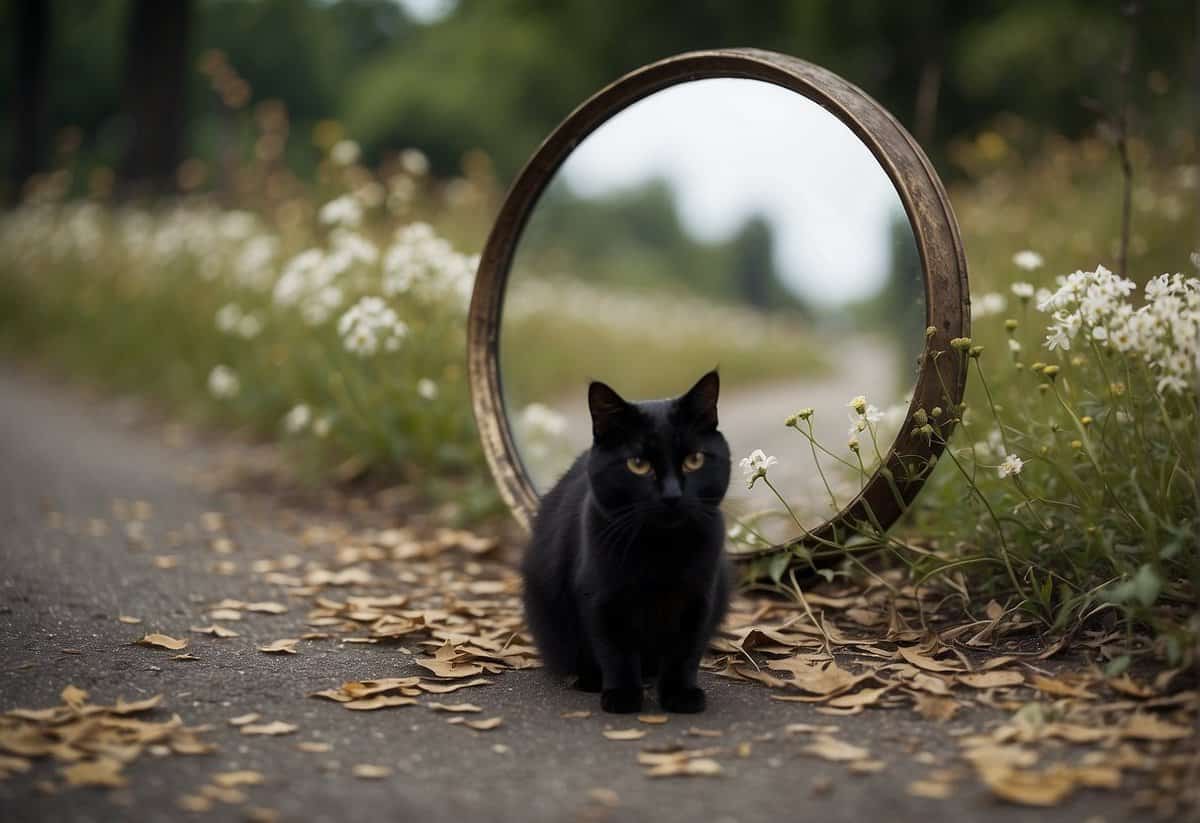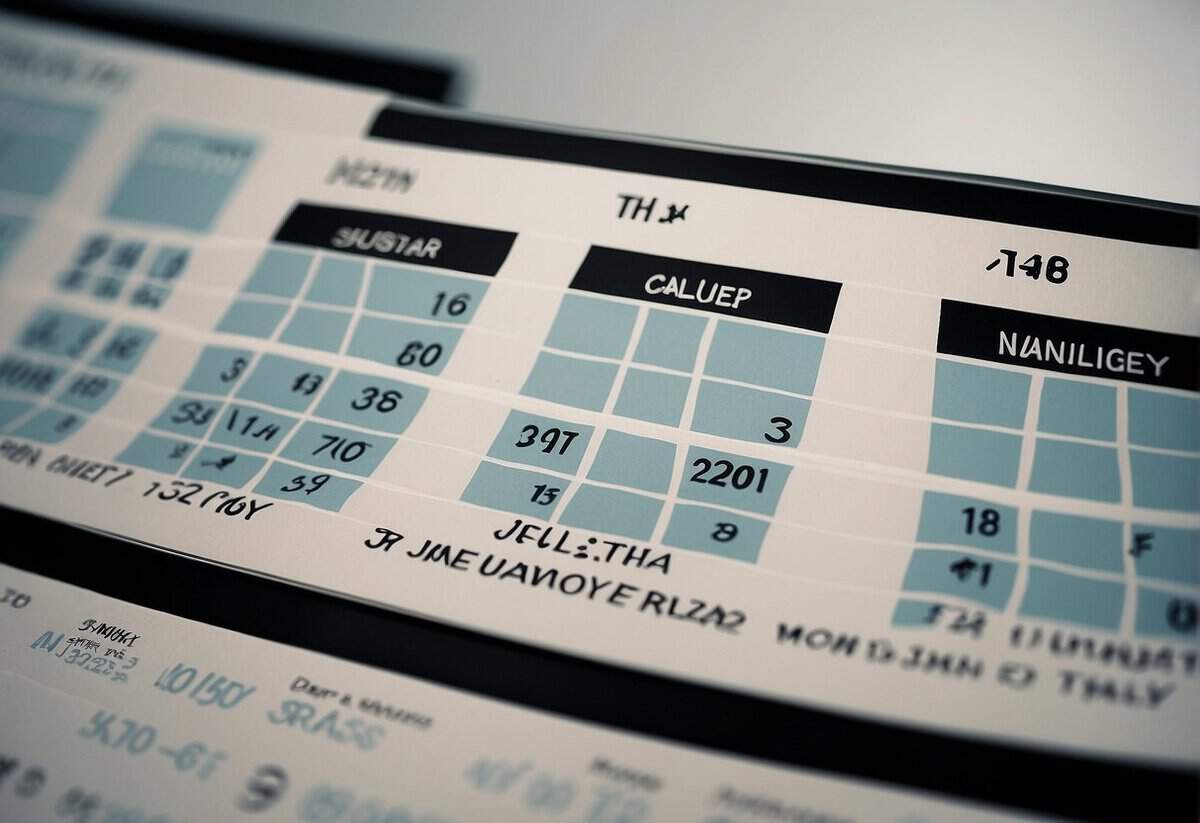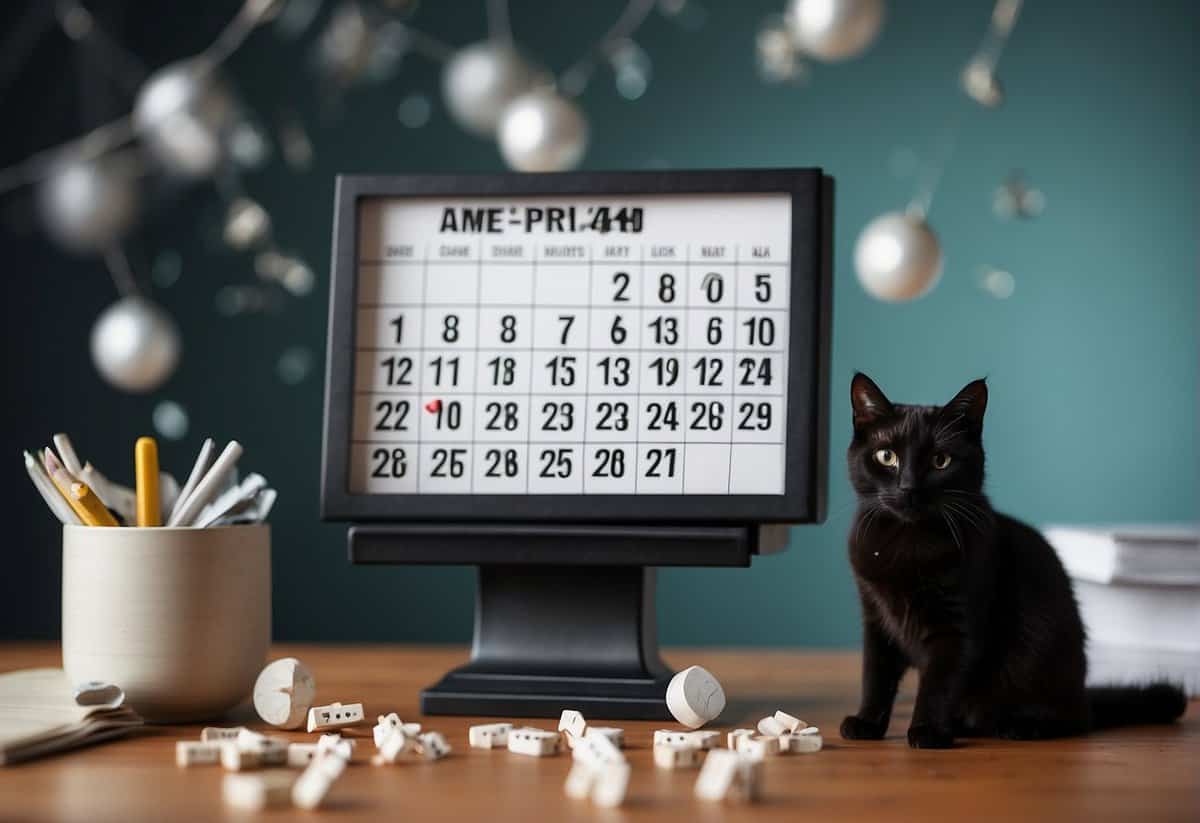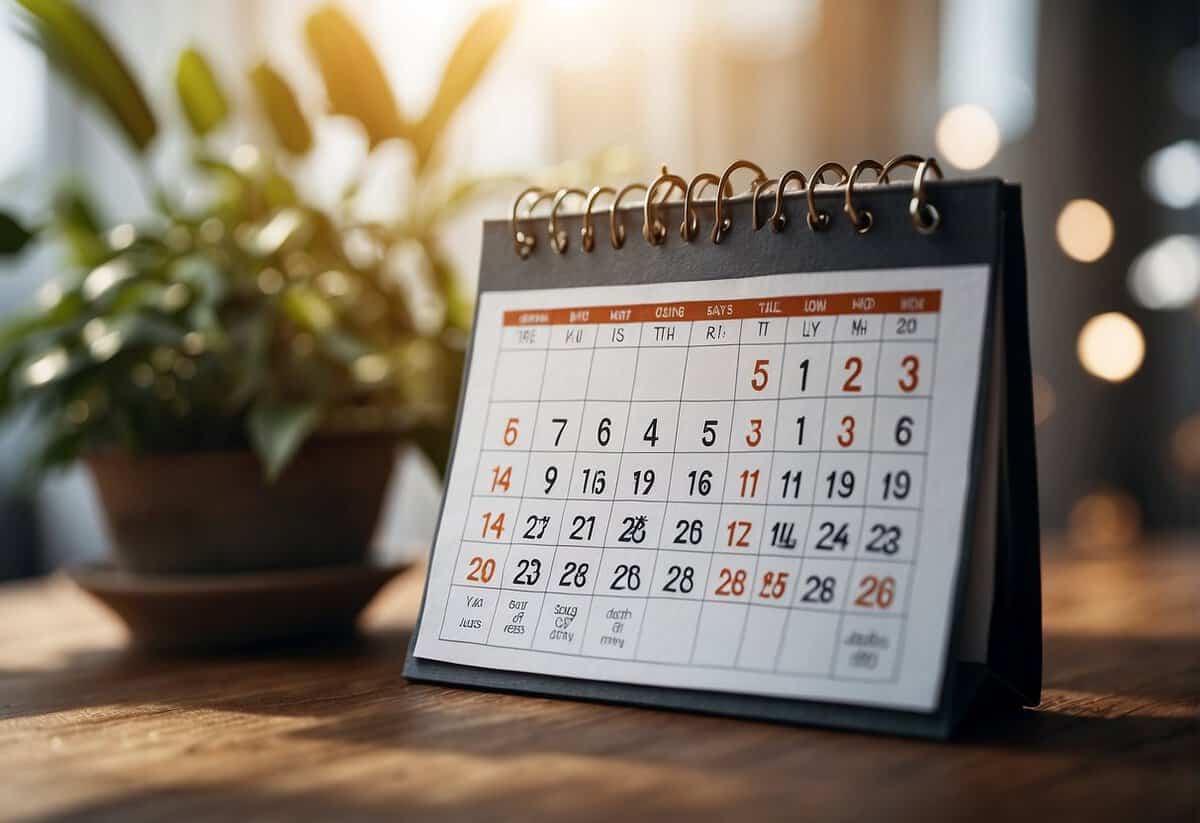What Month is Unlucky for Weddings? Debunking Bridal Superstitions
When planning a wedding, choosing the right date is a decision that many believe can affect the course of the couple’s future together. Throughout different cultures and historical periods, certain times of the year have been marked as less auspicious for weddings. Superstitions about the best and worst times to wed have been passed down through generations, and whether or not you’re superstitious, it’s interesting to note which months are traditionally considered unlucky for tying the knot.

One month that frequently comes up in Western traditions as unlucky for weddings is July. The roots of this belief are difficult to pinpoint but may relate to old rhymes and lore that suggest hardship and sorrow for those who marry in this summer month. Despite the cautionary tales, the personal significance of a date or adherence to contemporary trends often outweigh these old superstitions. Ultimately, the choice of when to hold your wedding is a personal one, influenced by practical considerations and, sometimes, a touch of whimsy regarding what your chosen date represents.
Key Takeaways
- Superstitions have historically marked certain months as less auspicious for weddings.
- July is often cited as an unlucky month for marriage based on folklore and old rhymes.
- Your wedding date should be a personal choice that reflects your preferences and values.
Origins and Beliefs

When planning your special day, you may want to consider various traditions and superstitions that have influenced wedding dates throughout history. These beliefs stem from ancient folklore to cultural practices and can vary significantly around the world.
Superstition and Folklore
In terms of superstition, each culture has its own set of beliefs about lucky and unlucky wedding dates. For instance, July has been historically deemed an unlucky for weddings, while June is often considered most auspicious, thanks to the Roman goddess Juno, protector and patron of marriage. Meanwhile, some Western superstitions have considered Wednesday as the best day for your wedding, contrasting the perception of Friday the 13th or the Ides of March as inauspicious times to tie the knot. Additionally, leap days have traditionally been viewed with skepticism when it comes to scheduling weddings.
Cultural Perspectives
Moving to Asian cultures, you’ll find that the Chinese calendar is consulted to select a lucky wedding date, ensuring a prosperous marriage. In Hindu culture, astrological calculations play a critical role in finding a day that aligns with the couple’s fortunes. Similarly, Judaism holds Tuesday as a lucky day for nuptials, as it is mentioned in the Bible that “God saw that it was good” twice regarding the third day of creation. Contrastingly, some cultures might avoid specific days of the week entirely, due to their association with misfortune or past events.
Choosing the Right Date

When selecting your wedding date, it’s crucial to consider several key factors to ensure your special day aligns with your beliefs and preferences. Balancing astrology, cultural superstitions, and religious holidays can guide you toward a date that brings luck and joy to your marriage.
Considerations for Wedding Planning
Plan Ahead: Start by looking at the calendar well in advance. Popular dates can get booked quickly, so you’ll want to secure your venue and vendors early. Consider Fridays and Sundays for potentially lower costs and greater availability.
- Season: Each season offers a different ambiance. May to October is peak wedding season.
- Day of the Week: Midweek weddings might offer savings, while weekends are traditional but often pricier.
Avoid Certain Days: It’s common to avoid unlucky wedding dates such as Friday the 13th or personal dates that carry negative memories.
Astrological Influence
Zodiac Signs: Your sign can offer lucky wedding days in the Zodiac. For instance, Taurus might favor dates in late April to mid-May.
Lunar Cycles: Traditionally, a waxing moon is said to symbolize growth and is considered favorable. Full moons can be potent for romance, while a new moon symbolizes a fresh start. Some caution against weddings during a “void of course” moon.
Religious and Holiday Considerations
Religious Days: Major religious holidays, like Easter, Ramadan, or Yom Kippur, can impact guest availability and vendor services. Planning around these can ensure that all your loved ones can attend.
Cultural Observances: Some cultures find certain dates to be particularly fortunate. For example, in Asian cultures, numbers like eight can be seen as particularly auspicious for weddings.
By balancing these considerations, you can choose a wedding date that not only suits your logistical needs but also aligns with your values and beliefs for a truly memorable start to your married life.
Popular and Unpopular Months

When planning your wedding, you may find that certain months are preferred while others are considered less favorable due to a variety of reasons, including cultural superstitions and seasonal preferences.
Wedding Season by Month
Peak Wedding Season: Traditionally, late spring to early fall — specifically May through October — are seen as the most popular times to get married. For instance, September and October have recently been tied as the most popular months to wed, with each month hosting about 17% of annual weddings. This popularity is attributed to the pleasant weather and the natural backdrop that these months offer.
Less Popular Months: On the flip side, the winter months, particularly from November to February, see fewer weddings. February is noted as the least popular month for weddings, with just 3% of them occurring during this time. The cold weather and potential for inclement weather conditions could be contributing factors to this trend.
Numerology and Month Symbolism
Numerology Considerations: In numerology, the number eight, which represents infinity, is often associated with prosperity and considered particularly auspicious. Thus, August, being the eighth month, could be seen as a lucky month to get married for those who follow numerological beliefs.
Month Symbolism: Various cultures have different interpretations of each month. For example, July, named after Julius Caesar, can carry connotations of strong leadership and opulence, which may be why some opt for July weddings. Likewise, December, linked with the end of the year celebrations and new beginnings with New Year’s Eve, could symbolize joy and renewal for a married couple.
Frequently Asked Questions

When planning your nuptials, you may come across various beliefs regarding auspicious and inauspicious dates. Here’s a closer look at specific times you might want to consider or avoid for your wedding day.
What are some wedding dates to avoid in astrology for 2024?
In 2024, astrologically, it’s suggested that you avoid dates that fall under Mercury retrograde or when Venus is in a weakened state, as these periods can bring communication issues and less harmony to relationships.
Are there specific months that are considered unlucky to be born in?
Astrologically, no month is considered universally unlucky to be born in; rather, it depends on individual birth charts. However, cultural beliefs vary, and some may consider certain months less favorable based on historical or mythological events.
Which months are traditionally seen as the luckiest for weddings?
June is traditionally considered one of the luckiest months to wed, stemming from the Roman goddess of marriage, Juno. May, on the other hand, is historically seen as unlucky for weddings.
Are there particular dates that numerology suggests avoiding for marriage ceremonies?
Numerology advises avoiding dates with a life path number of 4 or 8, as these numbers are associated with hardship and challenge. Calculating the life path number for a potential wedding date can determine its suitability.
What are unique and auspicious wedding dates in 2024 according to astrology?
Astrology points to dates with positive alignments, such as when the sun is in a trine or sextile with beneficial planets like Jupiter or Venus. These aspects can signal auspicious times for your wedding in 2024.
How does one determine the most suitable month for marriage in Hindu traditions?
In Hindu tradition, the timing of a wedding is crucial. To choose a suitable month, consult the Hindu calendar for auspicious dates or “muhurats,” considering factors like the bride and groom’s zodiac signs and planetary positions.

